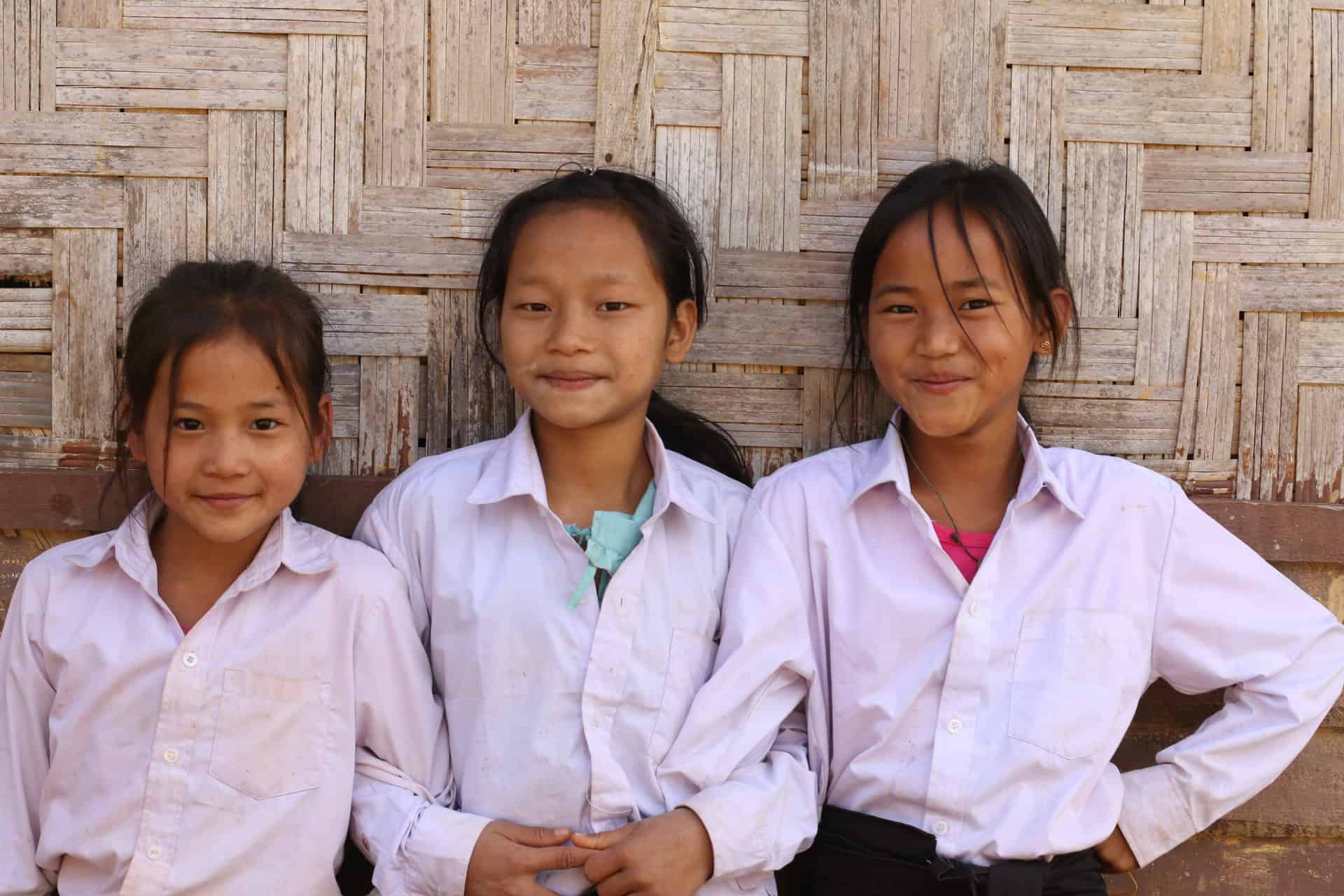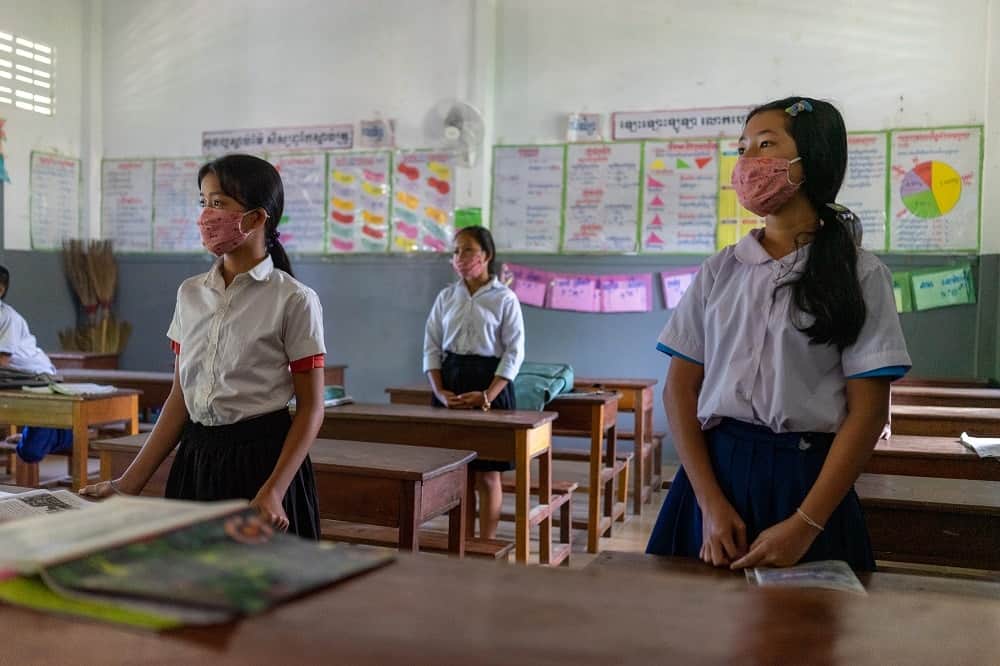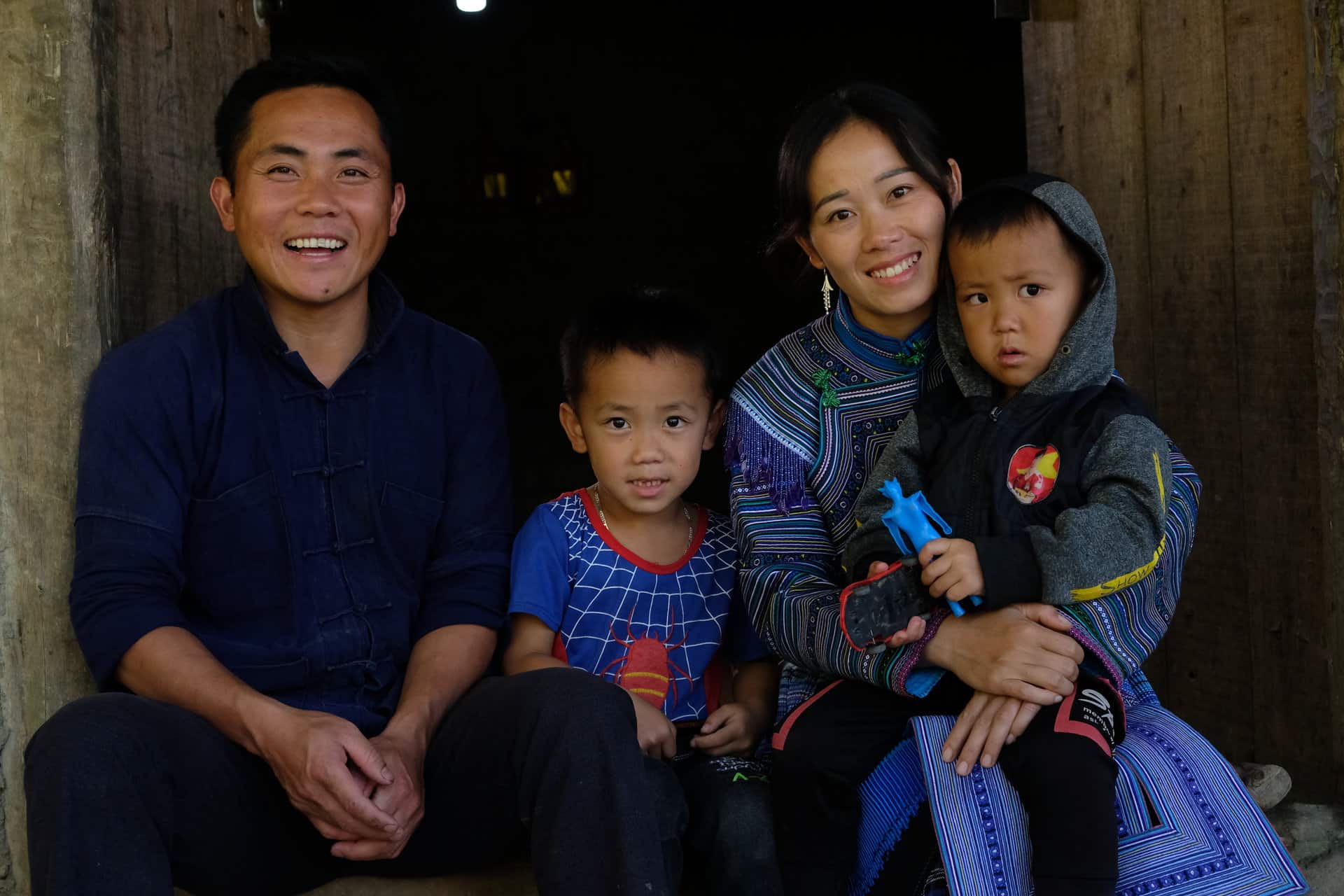Photo credit: Christine Redmond
The construction of toilets and hand-washing facilities in primary schools in Vietnam's Hoa Binh province is helping students like Mai Hoa develop better hygiene habits and have a better chance of staying healthy and continuing their education.
Among the many ethnic minority groups living in the verdant, mountainous province of Hoa Binh in northwestern Vietnam is ten-year-old Mai Hoa. While Hoa Binh has become an increasingly popular tourist destination in recent years because of its scenic landscapes, its rural location has posed many challenges for its residents, including Mai, particularly in terms of access to water and sanitation facilities.
Unequal access to water
In Sơn Phú village, where Mai lives, the lack of paved roads around the primary school meant that the school's outhouses became extremely muddy during the monsoon season and children did not have access to adequate water and sanitation facilities. According to theUNICEFa inadequate access to waterand hygiene (WASH) as this one is remains a major problem for many children in rural areas of Vietnam.
While Vietnam has made significant progress in improving rural water sanitation and hygiene over the past decade, progress in sanitation and hygiene remains slow with disparities based on geographic location, ethnicity and social status. According to a 2018 researchs, the disparities between ethnic groups are noticeable with 26.8 % of ethnic minority groups defecating in the open versus 2.4 % among Kinh/Hoa ethnic majority households.
Threat to health and education
Lường Thị Cảnh, a mother of two and resident of Sơn Phú village, explains that without a toilet at home, her family has no choice but to defecate in the garden. Her husband is currently recovering from a brain haematoma and his health problems mean he cannot work as much as he used to. "We don't have a toilet because there is no money to build one," says Thị Cản.My husband and I are trying to save money but there is just enough money to build a house, the whole family has to do these things [defecate] in the garden."
Without access to toilets at home, for some children, school is their only access to a hygienic toilet. However, where schools also lack adequate sanitation facilities, this can contribute to poor learning outcomesto theschool absenteeism and an increased risk of diarrhoeal diseases - one of the ten leading causes of death worldwide according to theUniversity of OxfordThese account for 12 % of under-five deaths in Vietnam.
"If there is no toilet, there will be no place to go to the toilet. The bad smell will affect the environment, and our health too," says Mai.
While Mai's teacher, Nguyễn Thị Thanh Phương, shares her student's view, she also points out that schools need more of a hygienic toilet. "As the school is crowded with students, the toilets are often clogged due to overcrowding," she explains.
Proper hand-washing facilities are also essential, says Phương, who always reminds her students that washing hands with soap and water is one of the most effective ways to prevent disease and the spread of infection.
"Without a handwashing area, our hands will be dirty when we play, and then we will eat with dirty hands, which will cause stomach aches. Dirty hands writing will also make the books dirty, bacteria will spread easily, especially Covid-19," says Mai, when asked why it is important to have washbasins in school.
Construction of toilets and hand washing stations
In 2020, Aide et Action supported the construction of 2 toilets and 5 hand washing stations in the Mai school, giving 523 primary school pupils and 65 teachers better access to water, hygiene and sanitation facilities. The new toilets and hand-washing stations have been a turning point for most children, leading to the development of new hygiene habits to better protect their health since then.
"Now that there is a hand-washing area, the teachers have taught us to wash our hands. There are also signs on the wall with instructions on how to wash our hands. We also take care to wash our hands properly by following the instructions.
Mai loves going to school where she can meet her friends and study her favourite subject, art. One day she dreams of becoming a doctor so that she can dedicate her life to caring for others. Hopefully, with access to quality education and better water, health and sanitation facilities, Mai will be able to stay in school and fulfil her dream.






